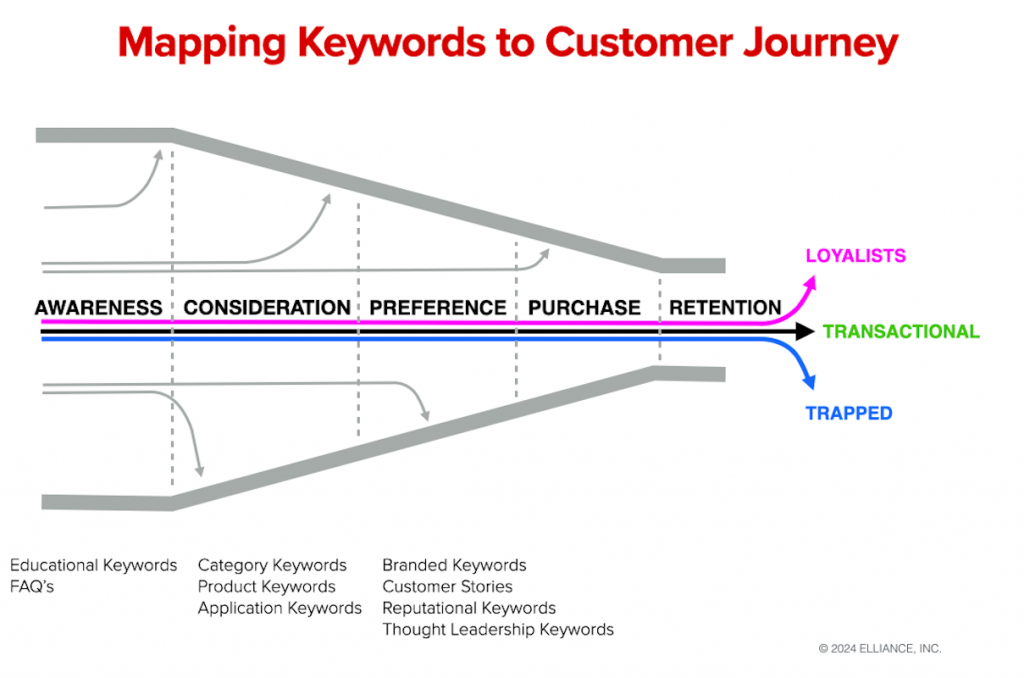| Jan 6, 2024
Mapping Keywords to Buyer Journey for Manufacturers and Industrial Companies

It’s crucial that manufacturing and industrial company marketers use best practices to not only map the right set of keywords across the prospective buyer or customer journey, but also to optimize their website and social media to secure Google page one rankings for those keywords.
To make a purchase, buyers (engineers, specifiers and influencers) move through a rational set of mental states. They first become aware that they have a problem and they need to solve it. They educate themselves by exploring potential solutions to solve their problem, reviewing frequently asked questions. Next they move to the consideration stage where they look for suppliers who could help them solve their problem; they study industry reports, case studies and supplier reviews. Next they reach the decision or preference stage where they look for top quality suppliers with proven successes and case studies; they seek proposals, evaluate them and seek clarifications. Finally, they make their purchase decision, finalizing contractual terms and issuing purchase orders. From there, they are subjected to a different set of retention and cross-sell strategies. At each stage of their journey, buyers use a unique set of keywords on Google and Bing.
As an example, let’s say you are a manufacturer of specialty alloys for the defense industry and you produce various types of alloys. You want to be found on Google page one by engineers, specifiers or buyers working with defense contractors.
During the awareness stage, the prospective buyers might type in keywords like defense-grade alloys, military-grade metals, high-strength defense alloys, specialty metals for defense and corrosion-resistant defense alloys.
During the consideration phase, they might type in keywords like alloy suitability for defense alloy suppliers, custom alloy manufacturers for defense, defense alloy applications, alloy strength in military use, high-temperature resistance for defense, and lightweight defense alloys. They might also look for military alloy specifications, alloy composition for defense, chemical properties of defense alloys, mechanical properties for military use, aerospace alloy requirements, and defense alloy grades and standards.
Finally, during the purchase or decision stage, they might type in keywords like defense alloy performance reviews, military alloy ratings, competitive analysis for defense alloy manufacturers, defense alloy pricing and quotes, supplier reviews for defense alloys, military customer testimonials for speciality alloy manufacturers.
The critical thing for the speciality alloy manufacturer is to apply best practices in search engine optimization (SEO) to their website pages for speciality alloy capabilities, speciality alloy grades and SKUs, industries served, speciality alloy case studies, speciality alloy white papers, speciality alloy videos, and categorized and tagged blog posts about speciality alloys. They should ensure that their website is not only optimized but also ranked on Google page one for the widest variety of keywords in the prospect and customer journey. A robust SEO program will ensure that buyers can find you at every stage of their journey.
Contact us if you are too busy and seeking a smart manufacturing marketing agency which can help you join the elite group of manufacturers and industrial companies growing their company’s share of mind, voice and market using our high performance search engine optimization services.
